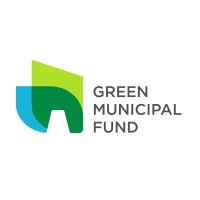
Investments in Forest Industry Transformation (IFIT) — Capital Investment Projects
At a glance
- Minimum amount : 1,000,000 $
- Up to 50% of project cost
- Closing date : June 30, 2024
- Agriculture, forestry, fishing and hunting
- Manufacturing
- Canada
- For-profit business
- All revenue ranges
- All organization sizes
- Indigenous Peoples
- Canadians
- Startups
Overview
Get funding of up to $1 million (small businesses) or $20 million (larger businesses) to cover the project costs of diversifying into new product streams or implementing innovative process improvements.
Activities funded
The Investments in Forest Industry Transformation (IFIT) grant is designed to support transformative projects in the forest sector that focus on adopting and integrating innovative technologies. The eligible projects aim to enhance environmental performance and secure the sector's competitiveness.
- Capital investment projects that facilitate diversification of forest products and responsible resource use.
- Installation of first-in-kind technologies in the forest industry.
- Early adoption of technological innovations requiring additional de-risking.
- Projects focusing on advanced biomaterials and biochemicals derived from wood components.
- Pulp and paper diversification initiatives leading to new market products.
- Development of next generation wood-based building products.
- Advanced biofuels projects utilizing wood fibre as a source.
- Initiatives aimed at process efficiency and decarbonization within the forest sector.
- Projects improving the utilization of underused wood fibre sources.
Eligibility
Eligibility for this grant is determined by specific requirements related to the applicant's profile and proposed activities within the IFIT program.
- Applicants must be legal entities validly incorporated or registered in Canada.
- Eligible entities include for-profit and not-for-profit organizations such as companies, industry associations, and research associations.
- Indigenous organizations and groups are eligible to apply.
- Provincial, territorial, regional, and municipal governments and their departments and agencies are eligible where applicable.
Who is eligible?
The IFIT funding is open to legal entities that are validly incorporated or registered in Canada. This includes a variety of eligible applicants from the forest sector and associated fields.
- For-profit organizations including companies and industry associations.
- Not-for-profit organizations such as research associations that are registered in Canada.
- Indigenous organizations and groups.
- Provincial, territorial, regional, and municipal governments and their departments and agencies, where applicable.
Who is not eligible
This grant does not specify certain exclusions regarding companies or industries due to their status or main activity. All information regarding ineligible applicants is not clearly stated outside the given eligible descriptions.
Eligible expenses
Eligible expenses for the IFIT grant include direct costs necessary for project implementation.
- Cost of salaries and benefits.
- Overhead expenditures directly related and essential to the project, up to 1.5% of eligible expenditures.
- Professional and technical services, including research, consulting, engineering, trades, and laboratory services.
- Travel expenses, including transportation, accommodation, and meals (based on National Joint Council rates).
- Training costs.
- Publication, printing, and other media services.
- Data collection services, including processing, analysis, and management.
- Licence fees and permits.
- Capital expenses.
- Retrofitting and upgrading of existing capital.
- Material and supplies.
- Meeting hospitality and space rental.
- Costs associated with environmental assessments.
- Technical audits associated with project activities.
Eligible geographic areas
This grant is available to various legal entities validly incorporated or registered in Canada. The eligibility extends across different government levels and Indigenous groups within Canada.
- Companies and organizations registered anywhere in Canada.
- Indigenous organizations and groups in Canada.
- Provincial, territorial, regional, and municipal governments in Canada.
Selection criteria
The evaluation and selection of projects for the Investments in Forest Industry Transformation (IFIT) grant are based on both mandatory and rated criteria to ensure alignment with the program’s objectives.
- Technical Feasibility: Evaluates the project’s execution plan, expected performance, and quality standards.
- Innovation: Measures the project’s technological novelty and replicability within the sector.
- Partnerships: Assesses the involvement of Indigenous and strategic partners, along with confirmed industry partnerships.
- Business Plan: Reviews the financial analysis, risk mitigation strategies, and overall business proposition.
- Fibre Supply: Considers the use of underutilized fibre sources and the impact on the local supply chain.
- Timing/Project Readiness: Scores the readiness and credible scheduling of the project.
- Value for Investment: Evaluates the financial efficiency and proportion of requested funding relative to total project costs.
- Diversity, Equity, and Inclusion: Scores the strength and approach of the DEI plan.
- Benefits to Canadians: Analyzes the project’s environmental, societal, and economic advantages.
How to apply
Expression of Interest (EOI) Submission
- Register with the GCKey through the NRCan Online Submission Portal.
- Download the EOI template from the IFIT website to prepare your responses offline.
- Log into the portal and complete the EOI form, saving progress frequently.
- Submit the completed EOI form before the deadline of the application window.
EOI Evaluation and Feedback
- Wait for the assessment of your EOI by IFIT program staff.
- If eligible, receive an invitation to submit a Full Project Proposal (FPP).
Full Project Proposal (FPP) Invitation
Prepare Full Project Proposal (FPP)
- Prepare the FPP along with supporting documents like business plan, project schedule, and financial details.
- Gather any optional documents such as letters of support or study results that bolster the proposal.
Submit Full Project Proposal (FPP)
FPP Evaluation
- The interdisciplinary committee reviews your FPP.
- Receive feedback or decision regarding shortlist progression.
Due Diligence Assessment
- If shortlisted, provide additional documentation for due diligence evaluation.
- Engage with NRCan officials for detailed documentation and requirements fulfillment.
Final Notification and Initiation of Funding Agreement
- Receive final decision on funding status from IFIT program.
- Negotiate and sign the contribution agreement if approved for funding.
Additional information
Here are additional relevant details for this grant:
- The program is experiencing delays in the application review process due to a high volume of submissions and a high-quality standard of proposals.
- There is a specific focus on projects that support decarbonization and the efficient use of resources to generate more value from the same amount of wood.
- Non-repayable contributions can be up to $10 million for capital investment projects and up to $1 million for studies.
- Domestic and international impact assessments may be required based on project characteristics and location.
- The granting process includes mandatory Diversity, Equity, and Inclusion (DEI) Plans and Questionnaires.
- Quarterly and annual reporting requirements include progress updates and details on diversity initiatives.
- The IFIT program includes stringent audits and requires recipients to maintain accurate records for at least five years after project completion.
- All funding is subject to the Access to Information Act and privacy regulations, highlighting the importance of confidentiality in handling applicant information.
- Potential applicants are encouraged to review a range of preparatory materials available, such as webinars, to assist with the two-phase application process.
Documents and links
Contacts
Frequently Asked Questions about the Investments in Forest Industry Transformation (IFIT) — Capital Investment Projects Program
What is the Investments in Forest Industry Transformation (IFIT) — Capital Investment Projects?
How much funding can be received?
What expenses are eligible under Investments in Forest Industry Transformation (IFIT) — Capital Investment Projects?
What is the deadline to apply?
Is the Investments in Forest Industry Transformation (IFIT) — Capital Investment Projects a grant, loan, or tax credit?
Who are the financial supporters of the Investments in Forest Industry Transformation (IFIT) — Capital Investment Projects?
Who is eligible for the Investments in Forest Industry Transformation (IFIT) — Capital Investment Projects program?
Who can I contact for more information about the Investments in Forest Industry Transformation (IFIT) — Capital Investment Projects?
Where is the Investments in Forest Industry Transformation (IFIT) — Capital Investment Projects available?
Are startups eligible for the Investments in Forest Industry Transformation (IFIT) — Capital Investment Projects program?
Are Indigenous Peoples eligible for the Investments in Forest Industry Transformation (IFIT) — Capital Investment Projects program?
More programs like this

Farm Equipment Financing
Farm Credit Canada (FCC)
AgriAssurance Program – National Industry Association Component
Agriculture and Agri-Food Canada (AAFC)
AgriInnovate Program
Agriculture and Agri-Food Canada (AAFC)
Green Industrial Facilities and Manufacturing Program — Energy Efficiency Solutions Track
Natural Resources Canada (NRCan)
ECO Canada — Youth Employment in Natural Resources YNR
ECO Canada
Forest Innovation Program
Natural Resources Canada (NRCan)
Indigenous Forestry Initiative
Natural Resources Canada (NRCan)
Apprenticeship Completion Grant (ACG)
Employment and Social Development Canada (ESDC)
Tree planting
Green Municipal Fund (GMF)